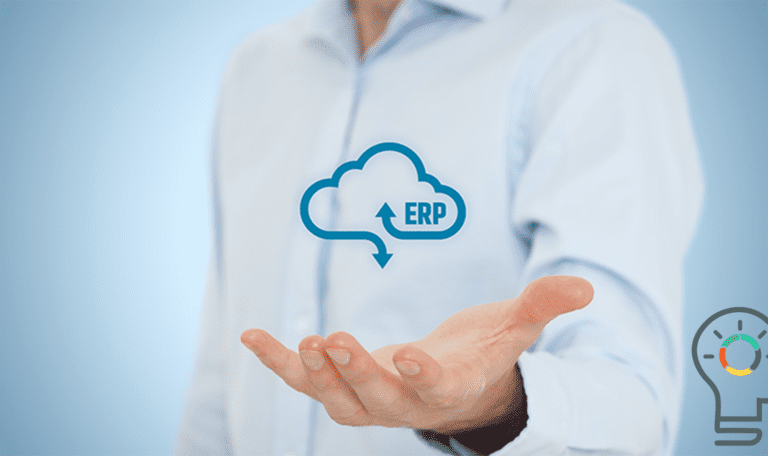Maximizing Productivity: Leveraging ERP in Manufacturing Enterprise Resource Planning (ERP) systems in manufacturing are pivotal in orchestrating all facets of operations, from shop floor activities to overarching business processes. These systems are instrumental in maximizing production by providing a unified platform that enhances visibility, improves coordination, and supports decision-making across various departments. By integrating critical business functions into a cohesive system, manufacturing ERP solutions address complex challenges, streamline operations, and bolster productivity. Key Takeaways Understanding ERP in Manufacturing Defining ERP Systems ERP systems in manufacturing integrate various business processes, from production to payroll, ensuring a centralized management approach. This integration allows for unprecedented visibility and coordination across different departments, enhancing overall operational efficiency. Benefits for Manufacturing Industries Manufacturing ERP systems are tailored to address the specific needs of the industry. They facilitate a comprehensive view of the business operations, breaking down silos and promoting efficiency. These systems are crucial in maintaining product qualitythroughout the production process. Key Components of Manufacturing ERP The core components of manufacturing ERP include integration of business processes with manufacturing operations. This integration ensures full control and visibility, which is essential for managing a manufacturing business effectively. The Role of ERP in Enhancing Manufacturing Efficiency Streamlining Operations In the realm of manufacturing, ERP systems are pivotal in harmonizing various operational processes, from inventory management to production scheduling. This integration not only simplifies management but also enhances the overall workflow efficiency. Facilitating Communication and Collaboration ERP platforms excel in centralizing data, which fosters improved communication and collaboration across departments. This centralization is crucial for timely and informed decision-making, ensuring that all parts of the manufacturing process are aligned and efficient. Improving Decision Making With ERP systems, manufacturers gain access to real-time data and analytics, which are instrumental in making informed decisions quickly. This capability is essential for adapting to market changes and optimizing manufacturing outputs. ERP systems enable manufacturers to effectively meet customer demand while optimizing operational efficiency and profitability. Critical Features of Manufacturing ERP Software Inventory Management Effective inventory management is crucial for manufacturing operations to ensure that there is always enough raw material and components to meet production demands without overstocking. Manufacturing ERP systems provide real-time inventory tracking and management capabilities, which help in maintaining optimal inventory levels and reducing waste. Production Scheduling Production scheduling tools within an ERP system are essential for planning and executing manufacturing processes efficiently. These tools help in allocating resources, planning production runs, and ensuring that deadlines are met, thereby enhancing overall operational efficiency. Shop Floor Control Shop floor control features of an ERP system empower manufacturers to monitor and control the shop floor activities in real-time. This includes tracking the progress of manufacturing orders, managing machine workloads, and ensuring that quality standards are met throughout the production process. Challenges Addressed by ERP in Manufacturing Supply Chain Disruptions ERP systems are crucial in managing supply chain disruptions by enhancing visibility and control over the entire supply chain. They enable real-time tracking of materials and products, which helps in anticipating and mitigating potential delays or shortages. Factory Digitization The integration of ERP systems facilitates the digitization of factory operations. This transformation is essential for optimizing production processes and improving overall efficiency. ERP systems provide the tools necessary for digital monitoring and management of factory activities. Changing Customer Demands To adapt to changing customer demands, ERP systems offer flexible and dynamic solutions. They support the customization of products and allow manufacturers to respond swiftly to market changes. This adaptability is crucial for maintaining competitiveness in a dynamic market environment. The Impact of ERP on Business Performance Operational Synergies ERP systems foster operational synergies by integrating various business processes. This integration allows for seamless data flow and improved coordination across departments, leading to enhanced operational efficiencyand reduced operational costs. Data Visibility and Management The implementation of ERP systems significantly boosts data visibility and management. With ERP, businesses gain access to real-time data across all departments, enabling better decision-making and more accurate forecasting. This centralized data management also ensures compliance and aids in risk management. Enhanced Productivity and Agility ERP systems contribute to enhanced productivity by automating routine tasks and optimizing business processes. This automation frees up employee time for more strategic tasks, thus increasing overall productivity. Additionally, ERP enhances business agility, allowing companies to quickly adapt to market changes or operational challenges. Choosing the Right ERP Solution for Manufacturing Choosing the right ERP solution is crucial for manufacturing companies to harness the full potential of ERP technology. The process involves a thorough understanding of business needs, a careful evaluation of ERP vendors, and the implementation of effective strategies. Assessing Business Needs Identifying the specific needs of your manufacturing business is the first step in selecting an ERP system. Consider factors such as company size, industry requirements, and specific functionalities needed. This assessment will guide you in narrowing down the ERP options that are best suited for your business. Evaluating ERP Vendors Once the business needs are clearly defined, the next step is to evaluate different ERP vendors. Look for vendors with a strong track record in the manufacturing sector and those offering solutions that align with your business needs. Comparing features, costs, and customer reviews are essential to making an informed decision. Implementation Strategies Effective implementation of an ERP system requires careful planning and execution. Develop a comprehensive implementation plan that includes timelines, resource allocation, and training for staff. Ensuring a smooth transition to the new system is crucial for minimizing disruptions and maximizing the benefits of the ERP system. Future Trends in Manufacturing ERP Technological Advancements The manufacturing sector is poised to witness significant technological advancements in ERP systems. Cloud deployment and the integration of the Internet of Things (IoT) are expected to dominate the landscape, enhancing connectivity and real-time data access across operations. Integration with Emerging Technologies ERP systems will increasingly incorporate AI and machine learning to optimize processes and predictive maintenance. This integration promises not only improved efficiency but also smarter, more responsive operations. Adapting to Evolving Market Demands Manufacturers must adapt their ERP systems to keep pace with rapidly changing market..









